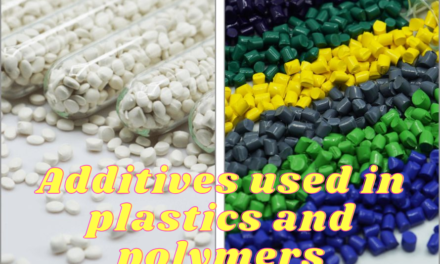Industries That Rely on Plastic Extrusion Manufacturing
Plastic extrusion manufacturing plays a vital role in numerous industries due to its cost-effectiveness, high production efficiency, and ability to produce continuous profiles with precise dimensions. Below are the key industries that depend on plastic extrusion:
1. Construction & Building Materials
Plastic extrusion is widely used in the construction industry due to its ability to produce durable, weather-resistant, and lightweight materials.
Common Applications:
- PVC pipes and conduits for plumbing and electrical installations.
- Window and door profiles made from extruded vinyl and composites.
- Roofing sheets and insulation panels for thermal efficiency.
- Siding and wall panels for exterior and interior finishes.
- Gaskets and weatherstripping for sealing applications.
Why Extrusion?
- Cost-effective for large-scale infrastructure projects.
- Resistant to moisture, UV exposure, and corrosion.
- Customizable in color, texture, and thickness.
2. Packaging Industry
Plastic extrusion is crucial in flexible and rigid packaging solutions, particularly for food, pharmaceuticals, and industrial goods.
Common Applications:
- Plastic films and sheets for packaging food, medical supplies, and consumer products.
- Blister packaging and clamshell containers for pharmaceuticals and electronics.
- Shrink wrap and stretch films for palletizing and bundling goods.
- Multi-layer barrier films to extend shelf life in food packaging.
Why Extrusion?
- Produces lightweight, flexible, and durable packaging.
- Enables co-extrusion for multiple layers (e.g., oxygen barriers for food preservation).
- Supports high-speed production for mass-market applications.
3. Automotive Industry
Plastic extrusion contributes to the lightweighting, durability, and cost reduction of vehicles by replacing metal and glass with engineered plastics.
Common Applications:
- Automotive trim, bumpers, and weather seals.
- Plastic tubing for fuel and fluid transfer systems.
- Dashboard and interior panels for aesthetics and noise reduction.
- Lighting components and protective covers.
Why Extrusion?
- Reduces vehicle weight, improving fuel efficiency and electric vehicle (EV) range.
- Enhances safety and performance with impact-resistant plastics.
- Enables customized profiles and intricate designs.
4. Medical and Healthcare Industry
Plastic extrusion is widely used in medical applications due to its ability to produce biocompatible, sterilizable, and high-precision components.
Common Applications:
- Medical tubing and catheters for fluid and air transfer.
- IV and blood transfusion tubing.
- Implantable polymer components for orthopedic and cardiovascular use.
- Protective medical films and sheets for sterilization and hygiene.
Why Extrusion?
- Meets strict FDA and ISO medical-grade material requirements.
- Enables the production of multi-lumen and micro-extruded components.
- Offers high flexibility, chemical resistance, and sterilization compatibility.
5. Electrical & Electronics Industry
Extruded plastics are essential for insulation, protection, and structural support in electrical and electronic devices.
Common Applications:
- Cable insulation and wire sheathing for electrical conductivity protection.
- Heat shrink tubing for wire bundling and waterproofing.
- Plastic enclosures and panels for electronics and appliances.
- Printed circuit board (PCB) laminates for insulation.
Why Extrusion?
- Provides excellent dielectric and thermal resistance.
- Enhances safety and durability in electrical applications.
- Can be flame-retardant and UV-resistant for harsh environments.
6. Aerospace & Aviation Industry
Plastic extrusion is increasingly used in aerospace applications due to the demand for lightweight and high-strength materials.
Common Applications:
- Plastic ducts and conduits for fluid and air circulation.
- Window seals and gaskets for aircraft cabins.
- Lightweight structural components to reduce fuel consumption.
- Flame-retardant wire coatings for aerospace wiring systems.
Why Extrusion?
- Meets stringent FAA and aerospace material standards.
- Offers high durability, chemical resistance, and lightweight advantages.
- Enables precision manufacturing for tight-tolerance components.
7. Agriculture & Irrigation Industry
Extruded plastics play a key role in efficient water management, crop protection, and greenhouse applications.
Common Applications:
- Drip irrigation tubing and hoses for water-efficient farming.
- Greenhouse films and plastic covers to control temperature and humidity.
- Seed trays and hydroponic growing channels for controlled agriculture.
- Mulch films to prevent weed growth and retain soil moisture.
Why Extrusion?
- Provides cost-effective, durable, and UV-resistant solutions for outdoor use.
- Enhances water conservation and agricultural productivity.
- Enables customized tubing diameters and film thicknesses.
8. Consumer Goods & Furniture Industry
Plastic extrusion is used to create aesthetic, functional, and ergonomic consumer products.
Common Applications:
- Plastic furniture components (e.g., chair frames, table legs).
- Hangers, shelving systems, and storage bins.
- Signage and display panels for advertising.
- Protective bumpers and edging strips.
Why Extrusion?
- Enables custom colors, textures, and finishes.
- Produces lightweight, durable, and cost-efficient consumer products.
- Offers recyclable and biodegradable plastic alternatives.
9. Marine & Boating Industry
Extruded plastic materials are preferred for corrosion resistance and water durability.
Common Applications:
- Boat bumpers and fenders for impact protection.
- Marine tubing and piping for fluid and electrical systems.
- Dock and deck profiles made from UV-resistant PVC or composite plastics.
- Sealing strips and gaskets to prevent water ingress.
Why Extrusion?
- Resistant to saltwater, UV radiation, and extreme temperatures.
- Provides lightweight alternatives to metal and wood.
- Low maintenance and long lifespan in harsh marine environments.










